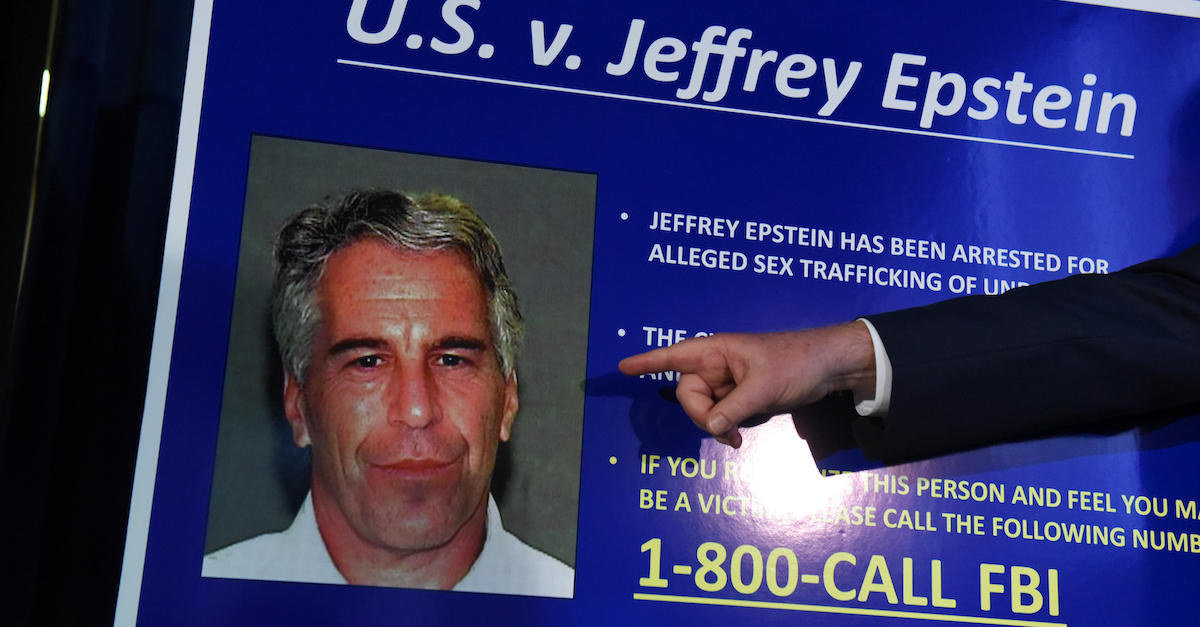
A federal judge in New York on Friday amended the protocol the court will follow in releasing a trove of documents concerning deceased pedophile Jeffrey Epstein. This will allow for documents that include the names of non-party individuals to be released on a rolling basis. The documents in question are part of a defamation dispute involving Epstein’s alleged madam Ghislaine Maxwell and alleged victim Virginia Roberts Giuffre.
Though Giuffre’s defamation case against Maxwell ended in 2015, Giuffre’s attorneys have fought a protracted legal battle seeking to unseal documents initially filed under seal that may contain allegations against other public figures from Epstein’s infamous elite social circle.
Senior U.S. District Judge Loretta Preska previously ruled that only those motions which now-deceased U.S. District Judge Robert Sweet ruled on when he presided over the litigation–and documents relevant to those motions–will be released to the public after the court conducts an individualized review of each sealed item.
Preska issued a brief order on Monday clarifying: how the court will proceed with the document review process; how it will notify non-parties to the litigation who are named in the documents but may wish to argue against the release of all or some of the documents.
The non-parties include:
“(a) persons who produced or answered discovery based upon the representation or understanding that the discovery would be subject to the Protective Order previously issued in this action; (b) persons who are identified as having allegedly engaged in sexual acts with Plaintiff, or other alleged victims, or allegedly facilitated such acts; (c) persons whose intimate, sexual, or private conduct is described in the Sealed Materials; and (d) persons who are alleged to have been victimized”
The court will review the material in groups determined by the non-party individuals named in the documents, beginning with all documents mentioning “Doe #1” and “Doe #2.”
According to Preska, that means “only Does 1 and 2 will be notified in the first instance” that they are named in the documents and have a chance to argue why all or some of the document should not be made public. Because several non-party individuals may appear in a single document, this potentially meant it could have taken several rounds of litigation before a single document was made public.
However, in order to accelerate the release process, Preska agreed to “unsealing portions of documents mentioning non-parties rather than waiting to unseal the entirety of a given document until all non-parties have provided input.”
“This will hopefully allow the materials to be unsealed on a rolling basis and at a rate somewhat coextensive with that of the review process,” the judge noted.
Preska reiterated that if the process proves “unworkable or inefficient” the court can revisit the review protocol.
See the order below.
Preska Order by Law&Crime on Scribd
[image via Stephanie Keith/Getty Images]
Have a tip we should know? [email protected]